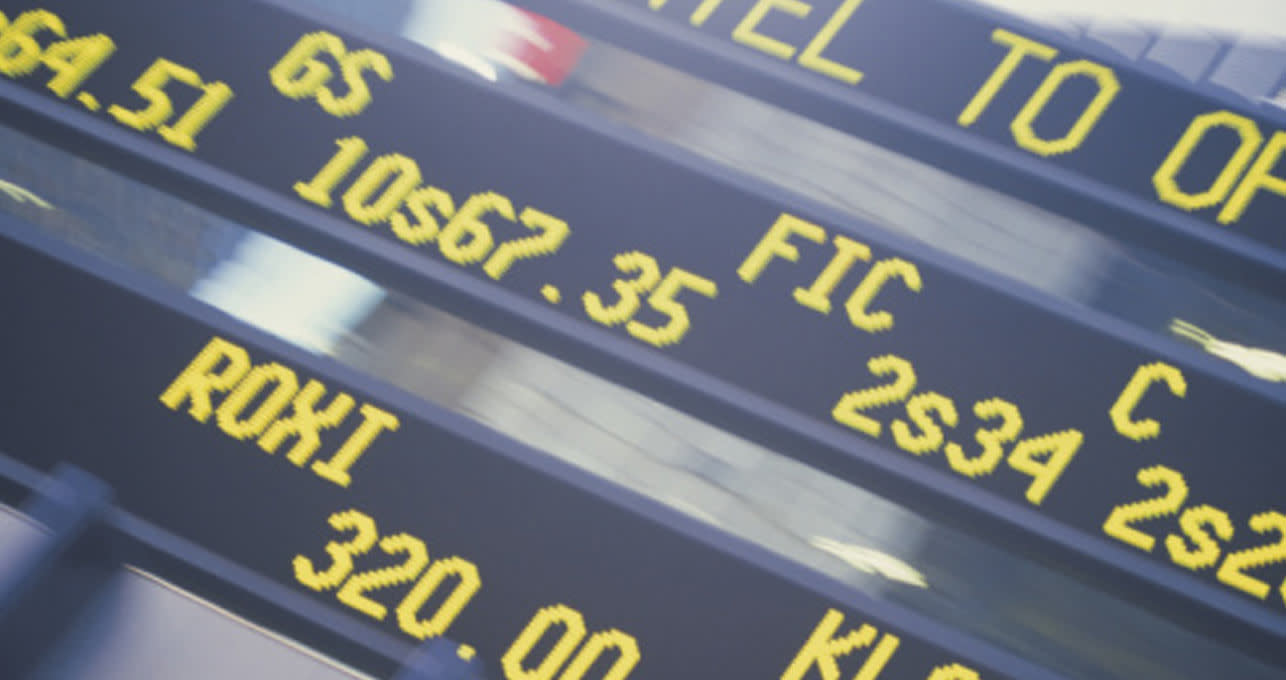PayPal’s first quarter revenues rose 10% in the first quarter to $7.7bn when ignoring currency movements. That’s ahead of earlier guidance of 7%.
Underlying operating profit improved by 15% to $1.4bn, helped by stable cost control and interest receipts on customer balances.
Free cash flow grew 76% to $1.8bn benefitting from lower tax payments. At the quarter’s end, net cash was $4.6bn. PayPal spent $1.5bn on share buybacks in the period.
Revenue growth guidance for the second quarter stands at 7%. Over the full year underlying earnings per share is now expected to grow in the mid-high single digit range up from previous guidance of a flat performance.
The shares were up 1% following the announcement.
Our view
PayPal is making pleasing progress in 2024, which it sees as a transition year. We still see plenty of structural growth drivers in the electronic payments industry. But the model is facing some strong headwinds. In the digital wallet space, competition is intensifying from the likes of Apple Pay and Google Wallet, which are vying to become consumers' preferred payment method of choice. The space is becoming equally crowded in terms of services to merchants, and here there are newer entrants with arguably superior technology offerings.
What PayPal does have on its side is scale, and for now, it remains the market leader in online payment processing. But the competitive pressure means growth is getting harder to come by.
PayPal's strongest volume growth is currently coming from its unbranded business which allows businesses to put their own name to the payment solution. It also opens the door to provide retailers with additional services such as the buy-now, pay-later offering, which we think may see further traction as consumers grapple with a cost-of-living crisis and burn through their savings at a rate of knots.
But we remain concerned about the lower profitability of payments in the unbranded side of the business. Looking ahead, management is firmly focussed on improving the Group's offer to both businesses and consumers. We're glad to see efforts to re-invigorate the branded checkout business start to pay off. But there's a huge job to do and it will be some time before we know if the upfront cost can drive margin growth and customer acquisition.
Some of this bill is being mitigated by an aggressive cost-cutting program. There's more of that to come this year but trimming the cost base can't offset lower profitability indefinitely without negatively impacting the ability to grow and innovate.
A robust balance sheet, and strong free cashflows give firepower to make acquisitions, invest internally in upgrading the product suite, or distribute cash to shareholders. But remember, no returns are ever guaranteed.
Declining margins and increasing competition have put serious downward pressure on PayPal's valuation, which is well below its long-run average. Margins are moving in the right direction again, but we’d like to see a long-term trend develop before getting too excited. Results are also benefitting from robust payment volumes, supported by continued consumer resilience. But there’s no guarantee that will continue so be prepared for some ups and downs.
Environmental, Social & Governance Risks
The technology sector is generally low-risk in terms of ESG, but some segments like Electronic Components can be more exposed to environmental risks. Regulatory interest in the sector has picked up recently, leading to more acute business ethics risks. Other key risks include labour relations, data privacy and product governance.
According to Sustainalytics, PayPal's overall management of material ESG issues is strong. Concerns about anti money laundering processes appear to have been addressed. The company fosters a culture of privacy by design and mandates annual employee training on data privacy. Its diversity programmes are well thought but staff turnover has been relatively high, a trend seen across much of the sector. PayPal is keen to highlight its place as a as a facilitator of donations to good causes. However there have been concerns raised about the transparency of its giving platform.
Paypal key facts
All ratios are sourced from Refinitiv, based on previous day’s closing values. Please remember yields are variable and not a reliable indicator of future income. Keep in mind key figures shouldn’t be looked at on their own – it’s important to understand the big picture.
This article is original Hargreaves Lansdown content, published by Hargreaves Lansdown. It was correct as at the date of publication, and our views may have changed since then. Unless otherwise stated estimates, including prospective yields, are a consensus of analyst forecasts provided by Refinitiv. These estimates are not a reliable indicator of future performance. Yields are variable and not guaranteed. Investments rise and fall in value so investors could make a loss.
This article is not advice or a recommendation to buy, sell or hold any investment. No view is given on the present or future value or price of any investment, and investors should form their own view on any proposed investment. This article has not been prepared in accordance with legal requirements designed to promote the independence of investment research and is considered a marketing communication. Non-independent research is not subject to FCA rules prohibiting dealing ahead of research, however HL has put controls in place (including dealing restrictions, physical and information barriers) to manage potential conflicts of interest presented by such dealing. Please see our full non-independent research disclosure for more information.


